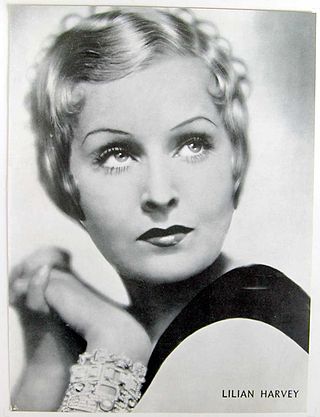
Lilian Harvey was a British-German actress and singer, long based in Germany, where she is best known for her role as Christel Weinzinger in Erik Charell's 1931 film Der Kongreß tanzt.
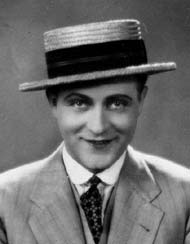
Willy Fritsch was a German theater and film actor, a popular leading man and character actor from the silent-film era to the early 1960s.

Der Kongress tanzt is a German musical comedy film produced in 1931 by Ufa, directed by Erik Charell, starring Lilian Harvey as Christel Weinzinger, the glove seller, Willy Fritsch as Tsar Alexander I of Russia and his doppelgänger, Uralsky, Otto Wallburg as Bibikoff, his Adjutant, Conrad Veidt as Prince Metternich, Carl-Heinz Schroth as his Secretary, Pepi, Lil Dagover as the Countess and Alfred Abel as the King of Saxony.

Willy Birgel, born Wilhelm Maria Birgel, was a German theatre and film actor.
Paul Martin was a Hungarian film director and screenwriter who worked for many years in the German film industry. He directed 60 films between 1932 and 1967. He was romantically involved with the film star Lilian Harvey and directed her in a number of films until he left her in 1938 for the actress Frauke Lauterbach. They made one final film Woman at the Wheel together during the filming of which their relationship remained cold.

Burglars is a 1930 German musical comedy film directed by Hanns Schwarz and starring Ralph Arthur Roberts, Lilian Harvey, Willy Fritsch, and Heinz Rühmann. It is also known in English by the alternative title Murder For Sale. It is based on the French play "Guignol le cambrioleur" by Louis Verneuil, who co-wrote the screenplay. A French-language version, titled Flagrant délit, was filmed at the same time. The film was intended by the studio UFA as a follow-up to the hit musical The Three from the Filling Station.
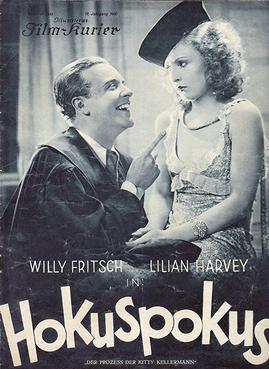
Hocuspocus is a 1930 German comedy film parallel version directed by Gustav Ucicky, starring Anglo-German Lilian Harvey, Willy Fritsch, and Oskar Homolka. It was the first adaptation of the 1926 play Hokuspokus by Curt Goetz, but used different role names.

The Three from the Filling Station is a 1930 German musical film directed by Wilhelm Thiele and starring Lilian Harvey, Willy Fritsch, Heinz Rühmann, and Oskar Karlweis. Produced by Erich Pommer, the film was a major success for the UFA studio, outgrossing even The Blue Angel. Several songs composed by Werner R. Heymann and performed by the Comedian Harmonists have remained popular up to today. The film also had a heavy influence on Hollywood musicals during the 1930s.
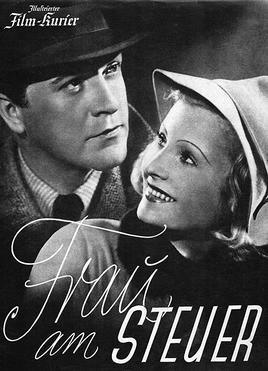
Woman at the Wheel is a 1939 German romantic comedy film directed by Paul Martin and starring Lilian Harvey, Willy Fritsch and Leo Slezak. It was the last German film featuring Harvey, who had been the leading box office star in Germany during the 1930s, although she made two further films after moving to France.
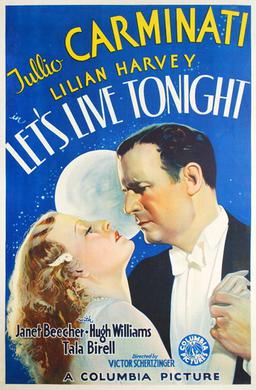
Let's Live Tonight is a 1935 American musical comedy film directed by Victor Schertzinger and starring Lilian Harvey, Tullio Carminati and Janet Beecher. The film was made as part of an unsuccessful attempt to establish Harvey, who was a top box office draw in Germany, as a major star in Hollywood. Harvey was under contract to Fox Film, but was loaned out to Columbia Pictures for the production. After making it, Harvey returned to Europe, first to Britain to appear in Invitation to the Waltz and then to Germany, where she starred in Black Roses, which relaunched her German career.

Chaste Susanne is a 1926 German silent comedy film directed by Richard Eichberg and starring Lilian Harvey, Willy Fritsch and Ruth Weyher. It is based on the 1910 operetta Die keusche Susanne composed by Jean Gilbert with a libretto by Georg Okonkowski. In Britain it was released under the alternative title The Girl in the Taxi in reference to The Girl in the Taxi in the English version of the operetta. The film's art direction is by Jacek Rotmil. It was filmed at the Johannisthal Studios in Berlin.

Her Dark Secret is a 1929 German silent comedy film directed by Johannes Guter and starring Lilian Harvey, Willy Fritsch, and Harry Halm. The film reunited Harvey and Fritsch, who had previously appeared together in Chaste Susanne (1926), although this time, their characters become a couple at the end of the film. This provided a template for a number of popular films over the following decade, such as The Three from the Filling Station. It was shot at the Tempelhof Studios in Berlin. The film's sets were designed by the art director Jacek Rotmil.

Waltz of Love is a 1930 German musical film directed by Wilhelm Thiele and starring Lilian Harvey, Willy Fritsch and Georg Alexander. It was shot at the Babelsberg Studios in Berlin with sets designed by the art director Erich Kettelhut. It premiered at the Gloria-Palast in Berlin on 7 February 1930. A separate English language version The Love Waltz was also produced.

Riding for Germany is a 1941 German drama film directed by Arthur Maria Rabenalt and starring Willy Birgel, Gertrud Eysoldt and Gerhild Weber. A German cavalry officer, badly injured during the First World War, emerges as a leading competitor in post-war equestrian events.
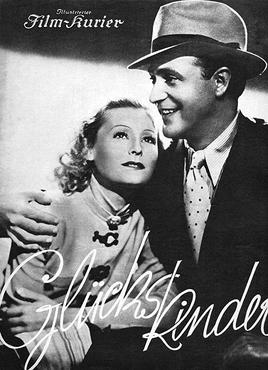
Lucky Kids is a 1936 German romantic comedy film directed by Paul Martin and starring Lilian Harvey, Willy Fritsch, and Paul Kemp. It was shot at the Babelsberg Studios in Berlin. The film's sets were designed by the art director Erich Kettelhut.

Fanny Elssler is a 1937 German historical drama film directed by Paul Martin and starring Lilian Harvey, Rolf Moebius, and Willy Birgel. It was loosely based on the life of the dancer Fanny Elssler. It was shot at the Babelsberg Studios with location filming in Vienna. The film's sets were designed by the art director Erich Kettelhut.

Orient Express is a 1934 American pre-Code drama film directed by Paul Martin and starring Heather Angel, Norman Foster and Ralph Morgan. It is based on the 1932 novel Stamboul Train by Graham Greene, the first of his works to be adapted for the screen. It was produced and distributed by Fox Film. Fox were persuaded to hire Martin as director by Lilian Harvey, the actress who was in a relationship with him, and had signed with the studio after starring in several films directed by Martin in Germany. It was his only Hollywood film and he returned to Germany where he again directed Harvey in several more hits. The film is part of a group set almost entirely on trains or ocean liners during the decade.

Seven Slaps is a 1937 German comedy film directed by Paul Martin and starring Lilian Harvey, Willy Fritsch and Alfred Abel. Like the earlier Lucky Kids, which had the same director and stars, it was an attempt to create a German version of screwball comedy. While the previous film had a New York setting, this takes place in London. It was shot at the Babelsberg Studios in Berlin. The film's sets were designed by the art director Erich Kettelhut. It was loosely remade in 1970 as Slap in the Face.

The Only Girl is a 1933 British-German musical film directed by Friedrich Hollaender and starring Lilian Harvey, Charles Boyer, and Mady Christians. It is the English-language version of The Empress and I which also starred Harvey and Christians. It was the last in a series of MLV co-productions between UFA and Gainsborough Pictures. It was released in the United States in 1934 by Fox Film.

A Blonde Dream is a 1932 German musical comedy film directed by Paul Martin and starring Lilian Harvey, Willy Fritsch and Willi Forst. A separate English-language version Happy Ever After was made as a co-production with Gainsborough Pictures. A French-language version was also released.


















